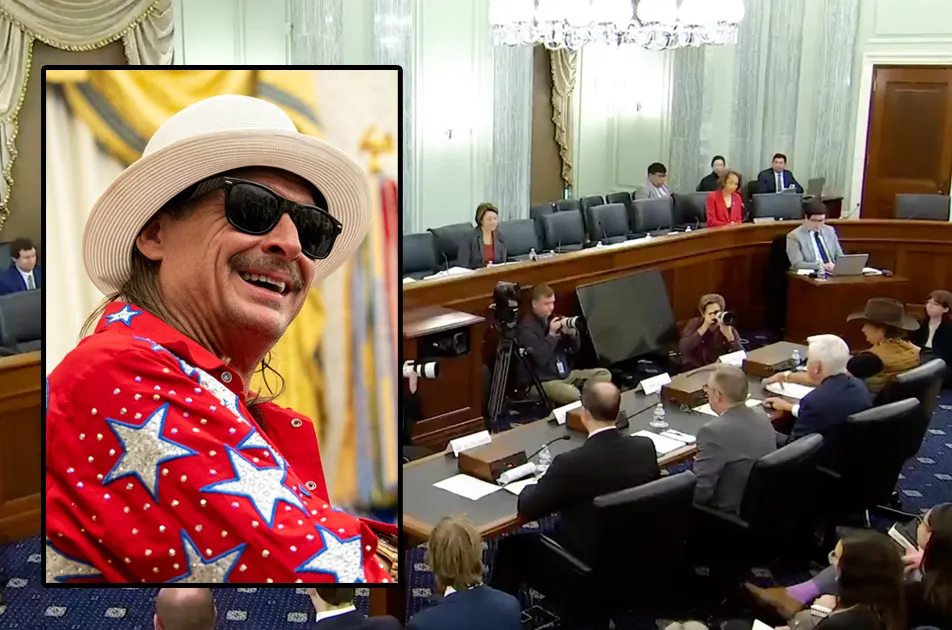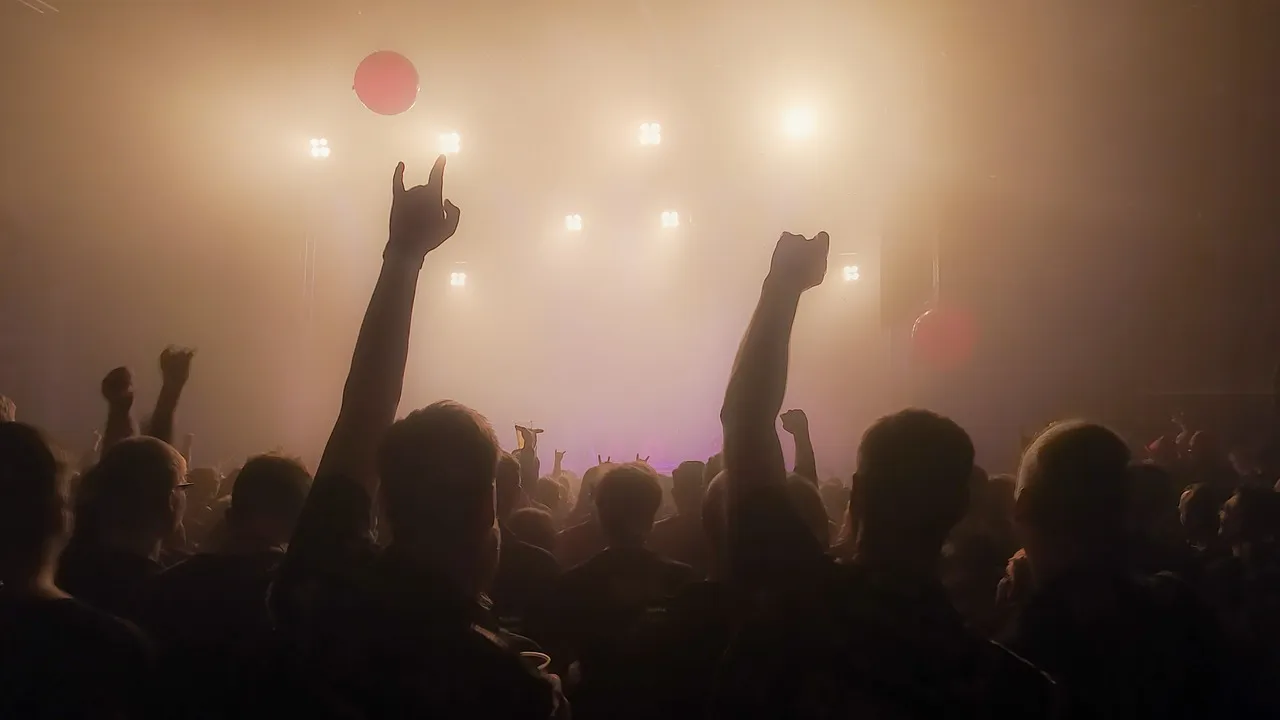Pollstar Live! returned to Los Angeles last month for its third gathering since its return from the pandemic shutdown and the 34th annual edition of the conference.
By David Benjamin De Cristofaro
[ALSO: Ticket talk front and center at Pollstar Live! Convention Keynote]
This year’s event broke its previous attendance record, bringing together nearly 2,000 executives amidst several days of panel discussions, keynotes, conversations, and Q&A sessions with industry leaders from major promoters, agencies, and productions in music.
The concert industry publication’s live conference has become a tentpole event that draws attendance from around the U.S. and other parts of the world to join in on the conversations and do business. Meetings are held throughout the event days in lobbies, pool areas, and hotel rooms in sales-show style.
Pollstar’s parent company Oak View Group’s President and CEO Tim Leiweke and President of the Media & Conferences Division, and former Billboard touring editor Ray Waddell kicked off the event with opening remarks.
“This will be the largest conference in the history of Pollstar, but more importantly, the largest conference in the music business,” Leiweke said. “This is what we dreamed of, having a place and a time that our industry can come together and talk about not only what’s working but what are our issues, what are our problems, and how we can solve them.”
OVG co-founder Irving Azoff even joined the festivities to helm the event’s keynote panel on “Ticketing Real Talk: Reforms, Resolutions, and Risks,” which featured country artist Garth Brooks, Madison Square Garden Exec and CEO James Dolan, and former attorney general for the United States Department of Justice’s antitrust division Makan Delrahim.
The cross-section of the music business and live industry that took the stage to comprise the panels featured heads from agencies such as CAA and UTA, organizations like MusiCares, major promoters such as Live Nation and AEG, promoter groups like Danny Wimmer presents, WME, and C3, as well as touring production companies, and arena GM’s from around the nation.
Meanwhile, the wealth of networking opportunities generated the very life force of the event, as you couldn’t exit the ballrooms where the panels were taking place without immediately hearing the loud buzz and unmistakable energy booming from the lobby of the hotel or its gathering areas.
As leading voices spoke about some of the most current issues the industry is dealing with, many in attendance met to discuss solutions and how they can partner with each other.
The conference opened with its Production Live! slate that facilitates needed conversations between industry professionals with the goal of improving live entertainment production at large. The discussions featured some of the touring industry’s most seasoned veterans who brought extensive knowledge and vast experience to their commentary, providing insights to those with an interest and passion for the live events industry as well as learning regarding topics such as the supply chain challenges it’s faced in THE return to live touring.
In addition to experienced insiders and key players of the music business and touring industry, attendees also were able to interface with the booking and talent agencies who represent the majority of artists’ rosters in music at every level during the conference’s Agents Live! Event.
From the speakers and attendees to the student ambassadors who staffed the event, the several days were a strong representation of Pollstar’s strength and resiliency as a key insightful event in the music business sphere.
Here is a look at what stood out among the week’s highlights
Ticketmaster has tremendous support in the music business
One of the things that really stood out across the Pollstar panels was how many people spoke not only favorably of Ticketmaster, but notably took care to point out its distinction as the best platform of its kind. Oft cited strengths of the ticketing company’s business were what a powerful marketing platform it is in terms of the services it provides and its exceptional artist tools offerings.
While the company has been dragged into its parent company Live Nation’s judiciary reviews in light of a Taylor Swift on sale that had more demand than supply, it’s brought into question its merger with the promoter and their practices and been dragged by legislators and the public due to many being disgruntled in the past over ticketing fees. Still, many spoke glowingly of its role in the live music industry, a pattern that was especially evident among representatives from the biggest talent agencies in music.
In fact, one could argue that nowhere has Ticketmaster’s true value as a platform been detailed and a better organic case made for it to branch off from Live Nation again to become its own business than at Pollstar Live! 2023. Even Ticketmaster’s own David Marcus pointed out the self-interest the companies have as long as they are joined at the hip. The partnership’s conflict of interest and limitations do appear to be a restrictive hindrance preventing Ticketmaster from operating to its full capacity and radius of capabilities that would ultimately help artists and the live industry more than with its current limitations.
Ticketing issues were clear, and solutions are needed
The keynote panel led by Azoff and MSG exec James Dolan cited some of ticketing’s biggest issues, such as scalping businesses, price gouging, and speculative ticket sales. These will need an overarching federal law as an encompassing umbrella to eliminate scalping as a business altogether while undercutting lobbyists businesses built have acquired to try to push legislation at the state level for their own benefit.
The expressed sentiment toward scalper practices and the secondary market resembled the backlash from the record industry to the disruption of piracy and file sharing in the early 2000’s. The panelists seemed to be unaware of emerging ticketing models and solutions that currently exist both in ticketing startups to harness speculative ticketing as a fan-service tool, as well as how consumer culture and fan expectations and spending behaviors have changed following pandemic practices to embrace reservation-spending for advance access to future concerts and amenities.
It raised the question of whether people working for some of the biggest music execs have researched emerging ticketing models and existing solutions or if they briefed them on those topics. I did the research unpaid during the pandemic just out of a sense of responsibility as a music business and tech grad and was surprised by this reveal, suffice to say these top execs deserve workforce dedicated to these types of solutions.
it was also clear in conversations with other economics-oriented panels that, while those in their respective positions are exceptional at the responsibilities of their job functions, the live industry still has yet to proactively prepare for the next era of ticketing and live event ecosystems or for the role that gamified, web3, and metaverse engagement will play in generating actionable and interactive smart-data and revenues that will provide substantially more intuitive insights about fan behavior than ever before by fostering participation within experiential environments. This will also help create a new era of ticket sale optimization and streamlined API-driven data ecosystems.
My questions were meant to gauge whether promoters or agencies were taking any innovative approaches toward creating new and differentiated revenue opportunities for artists and promoters onsite at live events, and how that could impact negotiating assumed risks versus guarantees in performance agreements. As gamification and augmented reality (AR) tech continues to grow in consumer culture, adapting the fractional revenues, microtransactions, & fan-choice “monetizing” of engagement data as currency in live experience ecosystems, will act to lay a framework for a metaverse interface between digital + in-real-life experiences in live performance venues & destination events!
The time for smart hires and an intelligence-based efficiency workforce has officially arrived and will help businesses and conference panels become innovative in their solutions.
It’s time for changes in contract work culture
One of the most direct and refreshing conversations came by way of a “Building Crews With Culture, Competence & Opportunity For All” panel in which Sacramento Kings & Golden 1 Center Senior Vice President & General Manager Alex Rodrigo guided a much-needed conversation on the disparity and happening in contract-work at the moment, and the disconnect between those aiming to have flexibility and cost-savings by hiring contractors, freelancers, and stagehands but are having trouble staffing.
This comes after years of unethical practices, cutting workers and hours after promising full days or changing schedules to save money instead of offering competitive and guaranteed flat day rates plus hourly if their shift time exceeds the rate. These money-saving hour and shift cut business practices by hiring managers, by promoter group department leads, VIP tour reps, and crewing entities that contract people without covering their travel and accommodations to work for them but will cut their hours and pay for their benefit without consideration of the cost to the workers.
I’ve experienced some of those unprofessional practices by promoter group department heads and production hiring managers first-hand, and LA Stagecall Director of Operations Gloria Vega did a fantastic job articulating those issues and the need for change.
“The good [production managers] care about the people who work for them and schedule people and treat them well,” Bigger Hammer Production Services founder and president Jahn Hardison said, “And they communicate and set expectations close to reality.”
If only there were more of those, the live industry needs them. Contract workers are turning down work these days for more reliable and guaranteed earning opportunities and more stable and steady jobs, with some productions having to bus in hands from other cities.
The panel also highlighted the need for more job training programs.
“We are in an echo chamber,” Vega said. “Someone has to be patient, show them what they can do. It may not be college. We had wood shop or auto shop in high school, schools can open up programs. There’s a way we can come together to figure that out.”
Ray Waddell threw his support behind the young crop of workers in production as well during the opening day, saying “This new breed of professionals, they’re young, they’re diverse, they’re open-minded and — contrary to popular belief — they have a super strong work ethic and are mentally tough. It’s time that we offer more opportunities for folks to enter this awesome business. It’s not for everybody, but if you find out it’s your thing, there’s nothing like it.”
The value of Pollstar’s data cloud was evident at the conference
“Pollstar concert data is the gold standard for the live entertainment industry and the Pollstar Live! conference is the epicenter of the concert business each winter,” said Ray Waddell when Oak View Group first acquired Pollstar and it’s in-person conference.
And he is correct, the company has been a principle gatherer of data from the global concert industry for over 40 years, and while they are now joined by platforms that help provide insightful data from artists live performances such as Bandsintown, Pollstar as a data provider and its live event continue to be industry leaders.
From tour histories to custom box office reports and routing booking data, their platform is a concert industry treasure chest of data.
Production Live! could be its own event
In the same way that Pollstar Live! draws such a big turnout from the business side of music in Los Angeles and beyond, Production Live! has developed its own drawing power as well. The opening slate of programming has grown into an event the likes of which that it could easily be held as its own standalone during another part of the year much like OVG’s Venues Now conference.
A testament to Ray Waddell’s work to build the day out with valuable programming, the event seems tailored for Nashville and the touring industry. While it will likely continue to thrive as an opener for Pollstar’s Live! event, it was impossible not to notice how strong the program would be by basing it in the hub of touring in Tennessee just as Pollstar Live! is held in the hub of the music business in Los Angeles. Both events could still feature Agents Live! and could open up Pollstar Live!’s opening day to both more Next Gen panels as well as more specially curated smart panels by more tech-oriented programing. Wishful thinking or a dream scenario, perhaps, but a testament to how the value in the production panel conversations of the opening day has grown.
Sustainability and supply chain continue to be notable topics
During a Fuel Prices, Labor and Gear: 2023 Outlook panel it was clearly communicated that material production and supply simply could not meet the demand in a year that saw a combination of rescheduled and make-up concerts and tours along with new ones during the industry’s bounce back year from the pandemic shutdown.
In fact, the panel revealed that, for manufacturers, their production, materials, and shipping costs have gone through the roof post COVID. And as tours are going out, and sports seasons are starting on the dates they always do, most of the conversations being had are less about price and more about supply. Manufacturing businesses are suffering from the lack of available resources.
It also became clear that there’s always more ways to save money than in logistics, meanwhile logistics are more expensive across the board and project to be for the foreseeable future, so savings or generating money will need to be done in other ways.
When Pollstar Live! first returned from the pandemic, Jake Berry and Bob O’Brien of SOS Global Express pointed out during the production slate how everything from the lack of ocean containers, planes, ships etc. all taken over and out of the market by e-commerce creates situations where if you don’t charter or book far enough out there’s scarcity and you’ll have to do air freight, and there’s a lot of bands who won’t be able to afford it.
That prediction seems to have come true, as stories were shared during this year’s event of the contrasts between touring costs for smaller acts versus major artists’ tours. It made it clear that crossing borders isn’t something some smaller or mid-range artists can afford right now, but that major tours more streamlined operations and bigger budgets can.
Not to mention that Buses, private jets, trucks and other transport method are now booked as far out as 2024.
“It’s cost-prohibitive, to be honest,” said SOS Global Express’ Senior Sales Executive of Strategic Global Partnerships and Alliances, John Walberg. “You’re hearing some of the mid-level bands cannot of the UK canceling their North American tour. It definitely puts a lot of pressure. I think you’re seeing a lot of bands go the festival route right now, because they don’t have to be multiple city stops. You see a lot of them consolidating and being more strategic than hitting the festival circuit.”
During another panel on the Global Touring Model, it was also noted that costs have given way to backlining a lot more than carrying production, localizing production, and looking at budgets earlier than ever before.
And while Live Nation and AEG still own their respective shares of the global market, artists are now more able to book more market-to-market agreements and negotiate the best deals if they so choose, and there is more of a strategic approach by artists’ reps to tailor a comparable fusion to markets and fans instead of just throwing money at a market and seeing if it works the way they had in the past.
ALSO: Ticket talk front and center at Pollstar Live! 2023 Convention Keynote
David Benjamin De Cristofaro is a recent grad ‘available-for-hire’ who achieved National success as an award-winning student of Music Business, Tech, Marketing and Economics with The University of The Arts and Berklee College of Music. While in school, he met with members of Congress in advocacy with The Recording Academy, worked with some of the largest artists, tours, and festivals in Music, and on creative experience projects and solutions for NARAS, the Capitol Records Innovation Center, Fender, Bose, MusiCares, Spotify, and Republic Records. He has served as an international speaker at universities and conferences. He spent the pandemic writing journalism pieces on immersive and fan experience ecosystems and researching emerging ticket models + solutions, while also contributing to USA Today SMG.





